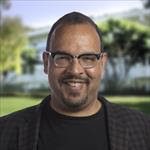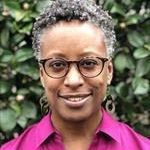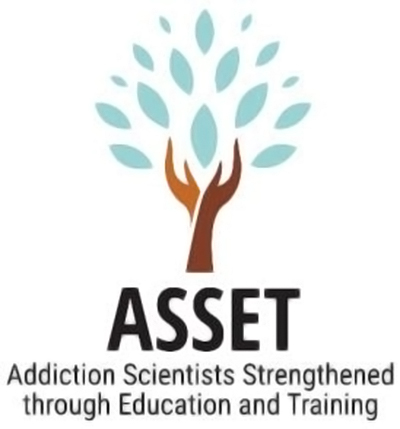Guest Speakers
Grant Writing Workshop

Michael Taffe, PhD
Professor, PsychiatryUC San Diego
mtaffe@ucsd.edu
Research in the Taffe Laboratory focuses on the effects of recreational or abused drugs on the brain and the resulting changes in behavior. We have a current interest in the compulsive use of drugs with a focus on factors involved in the transition from casual to repetitive drug use, as well as on novel therapeutic approaches using the immune system. Additional studies focus on the acute and lasting impact of recreational drug exposure on behavior and physiology.

Steffanie Strathdee, PhD
Professor, MedicineUC San Diego
sstrathdee@ucsd.edu
Steffanie A. Strathdee is Associate Dean of Global Health Sciences and Harold Simon Professor in the Department of Medicine at the University of California San Diego School of Medicine. She is also an Adjunct Professor at Johns Hopkins and Simon Fraser Universities. She co-directs UCSD’s new center for Innovative Phage Applications and Therapeutics (IPATH), Global Health Institute and the International Core of UCSD’s Center for AIDS Research. An infectious disease epidemiologist, she has spent the last two decades focusing on HIV prevention in marginalized populations in developing countries and has published over 600 peer-reviewed publications and has recently begun working to move bacteriophage therapy into clinical trials at IPATH.
Currently, she leads a multidisciplinary team of research on HIV risk behaviors among drug users and sex workers on the Mexico-US border. In 2009, she and her team were awarded the Leadership Award in International Collaboration from the National Institute on Drug Abuse, who also granted her a MERIT award for her research in Tijuana.
In total, she has been awarded more than 64 million USD in federal research grants as a principal investigator. She has recently co-authored a book The Perfect Predator: An Epidemiologist’s Journey to Save Her Husband from a Deadly Superbug published in 2019. It discusses her experience proposing an experimental bacteriophage therapy that saves her husband from a life-threatening multidrug resistant bacterial infection.

Susan Kiene, PhD
Professor of Global HealthDivision of Epidemiology and Biostatistics, San Diego State University
skiene@sdsu.edu
Before joining SDSU School of Public Health, Dr. Kiene was an Assistant Professor of Community Medicine at the University of Connecticut School of Medicine from 2011-2014 and an Assistant Professor of Medicine and Community Health (Research) at Brown University from 2007-2011, where she remains an adjunct faculty member in the School of Public Health. She also served on the Rhode Island Community Planning Group for HIV Prevention from 2008-2014.
Dr. Kiene’s research program in rural Uganda (the Salawo Collaboration) develops and tests sustainable community-based public health interventions implemented at individual, group, and community levels. While the bulk of her research is in Uganda, Dr. Kiene also works in South Africa.
Scholarly Areas
HIV Prevention: improving risk reduction counseling during HIV testing and linkage to HIV care, alcohol and HIV risk, intimate partner violence, interventions to help ameliorate HIV-related stigma and reduce HIV-related prejudice and discrimination
Maternal and Child Health: improving uptake of family planning services, gender dynamics, male involvement
mHealth: mobile apps to improve health service delivery, (e.g., malaria diagnosis and treatment by community health workers) and increase the ability of under-resourced settings to collect and access health data
Methodology: daily diary/daily process methods
Research Seminar Series

Kurt Organista, PhD
Professor, School of Social WelfareUC Berkeley
drkco@berkeley.edu
A leading expert on social work practice within the Latino community, Dr. Organista’s research focuses on psychosocial problems within the Chicano and Latino communities, acculturation and adjustment of ethnic minorities to American societies, minority mental health, cognitive behavioral therapy, depression in Latinos and HIV prevention with Mexican migrant laborers/Latinos.
Dr. Organista’s book, HIV Prevention with Latinos: Theory, Research and Practice, is the first-ever collection of texts written by leading authorities on the topic of HIV prevention among diverse Latino populations. It attempts to respond to the diminishing returns of the behavioral model of HIV risk by deconstructing the many social ecological contexts of risk within the Latino experience. He is also served as the principal investigator for a National Institutes of Health (NIH)/National Institute on Alcohol Abuse Alcoholism (NIAAA)-funded project that seeks to developing and test a structural-environmental model of HIV risk and prevention for migrant day laborers in San Francisco and Berkeley (2010 to 2015).
Dr. Organista currently teaches courses on social problems and psychopathology, stress and coping and social work practice with Latinx populations. social problems and psychopathology in our MSW program, and the American Cultures course, Race and ethnic relations and social welfare in the United States, as well as the Honors Thesis seminar for undergraduate majors in social welfare.
Scientific Ethics Workshops
Rebecca Fielding-Miller, PhD
Assistant Adjunct ProfessorFamily Med and Public Health
UC San Diego
rfieldingmiller@ucsd.edu
Dr. Rebecca Fielding-Miller is an Assistant Professor at the University of California, San Diego in the Division of Infectious Disease and Global Public Health and the Center on Gender Equity and Health. Her research examines structural drivers of HIV and gender-based violence in the United States and sub-Saharan Africa with a focus on the intersection of race, gender, and economic inequality. She holds an MSPH in International Health, Social and Behavioral Interventions from the Johns Hopkins Bloomberg School of Public Health, and a PhD in Behavioral Sciences and Health Education from Emory University. She served as a Peace Corps Volunteer in South Africa from 2006-2008 and as a Fulbright Scholar in Swaziland in 2013-2014.

Alexis Roth, PhD
Associate Professor,Community Health and Prevention
Dornsife School of Public Health
Drexel University
amr395@drexel.edu
Prior to pursuing graduate training, Dr. Roth worked for nearly 10 years as a public health practitioner. Her MPH in international health and development is from Tulane University. She received a PhD in health behavior from Indiana University and then went on to complete a postdoctoral fellowship in substance use and infectious diseases at University of California, San Diego.
Dr. Roth’s research is focused on understanding how individual, social, and environmental factors influence health disparities. In particular, she is interested in the intersection of gender and drug use on women’s health and the use of novel interventions to prevent opioid-related overdoses and increase access to health care among people who use drugs.
The goal of Dr. Roth’s work is to co-create sustainable solutions to public health problems by working in partnership with community members and advocates. To this end, Dr. Roth initiated the health equity advancement lab (HEAL) in 2018. Please check out the HEAL website for current projects and opportunities.
Leadership Seminar Series

Marguerita Lightfoot, PhD
Professor, MedicineUCSF School of Medicine
550 16th. Street
San Francisco CA 94158
Marguerita.Lightfoot@ucsf.edu
415-502-1000 ext. 66312
Marguerita Lightfoot, PhD is Professor of Medicine at the UCSF School of Medicine, Chief for the Division of Prevention Science, and Director of the Center for AIDS Prevention Studies (CAPS) and UCSF Prevention Research Center (PRC). She has an established research career conducting community-involved research, receiving awards for her community partnership efforts.
She has considerable experience designing and implementing preventive interventions and has developed culturally competent, efficacious HIV interventions for delinquent adolescents, runaway/homeless youth, youth living with HIV, and young MSM, including developing interventions for delivery via technology (e.g., computers, websites, mobile phone, video games). In particular, she developed an efficacious computer-based intervention to reduce the sexual risk behaviors of delinquent youth (published in the American Journal of Public Health), successfully adapted an intervention for youth living with HIV to youth in Uganda (published in Prevention Science), and developed a computer-based intervention implemented in medical settings to reduce the HIV transmission risk behavior of adults living with HIV (published in JAIDS).
She is particularly interested in developing cost-effective interventions that are easily translatable with utility in community settings and utilizes new technologies to engage disenfranchised individuals in health promotion activities. She has also conducted psychotherapy with predominately African American and Latino adolescents, adults, and families infected and/or affected by HIV.

Ricky Bluthenthal, PhD
Professor of Preventive MedicineAssociate Dean for Social Justice
University of Southern California
SSB 302R 2001 N. Soto Street
Health Sciences Campus
Los Angeles CA 90033
rbluthen@usc.edu
323 442 8236
Ricky N. Bluthenthal, Ph.D. is the Associate Dean for Social Justice and a Professor in the Department of Preventive Medicine and the Institute for Prevention Research at the Keck School of Medicine, University of Southern California. He received a BA in History and Sociology from the University of California Santa Cruz and a PhD in sociology from the University of California Berkeley.
His research has established the effectiveness of syringe exchange programs, tested novel interventions and strategies to reduce HIV risk and improve HIV testing among injection drug users and men who have sex with men, documented how community conditions contribute to health disparities, and examined health policy implementation.
His current studies include an observational cohort study of how cannabis legalization impacts use patterns and health outcomes of cannabis and opioids among people who inject drugs and a randomized controlled trial to test the efficacy of a single session intervention to reduce injection initiation risk behaviors among established people who inject drugs.
Dr. Bluthenthal has authored or co-authored over 160 articles in peer-reviewed scientific journals such as the American Journal of Public Health, Social Science and Medicine, The Lancet, Addiction, and Alcoholism: Clinical and Experimental Research among others.

Matthew Kiang, PhD
Instructor, Epidemiology and Population HealthStanford University
1701 PAGE MILL RD
Center for Population Health Sciences
PALO ALTO, California 94304
mkiang@stanford.edu
Dr. Kiang is an instructor in the Department of Epidemiology and Population Health at Stanford University School of Medicine and a Fellow at the Harvard FXB Center for Health and Human Rights. He received his doctorate in Quantitative Methods from the Department of Social and Behavioral Sciences at Harvard TH Chan School of Public Health.
Dr. Kiang’s research lies at the intersection of computational social science and social epidemiology. Methodologically, his work revolves around combining disparate data sources in epidemiologically meaningful ways. For example, he works with individual-level, non-health data (e.g., GPS, accelerometer, and other sensor data from smartphones), traditional health data (e.g., survey, health systems, or death certificate data), and third-party data (e.g., cellphone providers or ad-tech data). To do this, he uses a variety of methods such as joint Bayesian spatial models, traditional epidemiologic models, dynamical models, microsimulation, and demographic analysis.
Substantively, his work focuses on socioeconomic and racial/ethnic inequities in health. A few current projects include (1) a K99-funded work focused on reducing racial/ethnic inequities in the treatment of opioid use disorder; (2) his work with CrisisReady on quantifying the impacts of wildfires, natural disasters, climate change, and power outages on medically-vulnerable populations to inform equitable disaster response; and (3) work with the COVID-19 Mobility Data Network on leveraging third-party data to evaluate and inform public health interventions to the COVID-19 pandemic.

Jamila Stockman, PhD
Associate Professor, MedicineUC San Diego
9500 Gilman Drive
La Jolla CA 92093
jstockman@ucsd.edu
Jamila K. Stockman, PhD, MPH, is a Vice Chief and an Associate Professor in the Division of Infectious Diseases and Global Public Health, Department of Medicine at the University of California, San Diego. She is also Director of the Disparities Core at UC San Diego’s Center for AIDS Research. Dr. Stockman received her PhD in Epidemiology from the Johns Hopkins Bloomberg School of Public Health and an MPH degree from the George Washington University Milken Institute School of Public Health.
Dr. Stockman has dedicated her research career towards improving the lives of women with experiences of intimate partner and sexual violence. An epidemiologist by training, her research focuses on the intersecting epidemics of intimate partner violence and sexual violence, HIV acquisition and transmission, and substance abuse among marginalized populations. She is working to advance understanding of the underlying immunological and physiological mechanisms linking these epidemics and develop interventions that provide maximal reductions in HIV, substance abuse, and violence against women. Currently, she conducts her work in the US, US-Mexico border region, Latin America and Caribbean.
In addition to her research, Dr. Stockman actively collaborates with local public health departments and community-based organizations to ensure ethical and cultural appropriateness of her research among members of the community. She also serves on various domestic-violence prevention steering committees and community-based organizations working to address the deleterious effects of violence and HIV in families and relationships.
Gender & Cultural Sensitivity Workshops

Argentina Servin, MD, MPH
Assistant ProfessorDivision of Infectious Diseases and Global Public Health, Dept. of Medicine
University of California, San Diego (UCSD)
arservin@health.ucsd.edu
Dr. Servin is a bilingual and bicultural clinician-researcher with training in preventive medicine, infectious disease and clinical epidemiology. She received a Medical Degree and Master’s in Public Health from Universidad Xochicalco in Baja California, Mexico. Additionally, Dr. Servin completed the mini residency training program at UCSD’s AIDS Education and Training Center (AETC) and a fellowship examining the intersections between HIV and Gender-Based Violence (GBV) at the London School of Hygiene and Tropical Medicine.
Her work has included assessing sexual and reproductive health education and health service utilization among vulnerable underserved populations living in the U.S.-Mexico border region. For the past two years, specifically, she has focused her research on sexual violence, substance abuse and HIV/STI risk, among at-risk youth, female sex workers (FSWs), children of FSWs, and people who inject drugs (PWID) in the United States, Mexico and Central America. Dr. Servin also holds a shared appointment her alma matter, Universidad Xochicalco, where she conducts similar research and mentorship to medical students from disadvantaged backgrounds.
Dr. Servin’s passion and commitment for serving those most in need has led her to also serve as a medical volunteer at UCSD Health Frontiers in Tijuana (HFiT) student-run free clinic where she provides accessible, quality healthcare for underserved communities in Mexico in a respectful environment where students from both Mexico and the U.S., patients, and community members learn from each other.

Catherine Clune-Taylor, PhD
Assistant ProfessorCollege of Arts & Letters
San Diego State University
cclunetaylor@sdsu.edu
Catherine Clune-Taylor (she/her/hers) is Assistant Professor of Feminist Science and Technology Studies. In addition to a Ph.D. in Philosophy, she has a BMSc in Immunology and Microbiology. She teaches and writes in the fields (and at the intersections) of feminist theory, philosophy of gender and sexuality, philosophy of science (esp. philosophy of biology and medicine), critical disability studies, and bioethics. She is at work on a book critically exploring the science, ethics, and biopolitics underwriting all contemporary medical efforts which aim at securing “cisgendered futures” for minors, which includes both the management of intersex conditions under the “Disorders of Sex Development” treatment model, and the treatment of trans kids with so-called “conversion therapies”. Clune-Taylor has published articles in PhaenEx: Journal of Existential and Phenomenological Theory and Culture, the American Journal of Public Health, and Hypatia (Forthcoming 2019). Before joining SDSU, she was a Postdoctoral Research Associate in the Program in Gender and Sexuality Studies at Princeton University.
Personal and Professional Development Series

Ellen Beck, MD
Faculty Director of Leadership and Faculty DevelopmentUC San Diego
ebeck@ucsd.edu
Dr. Beck is faculty at University of California San Diego, School of Medicine. A family physician, she is the founding director of the UCSD Student-Run Free Clinic Project which provides quality empowering humanistic health care to people who have nowhere to turn. She is also the Director of our national Fellowship and Faculty Development program in Underserved Health Care. In 1987, she moved from Montreal where she taught at McGill University to San Diego where she became UCSD Director of students courses in Family Medicine and Underserved Health Care. She has recently become the Faculty Director of Leadership and Faculty Development for University of California San Diego. She, along with Max (whom she has known since high school), is honored to be the mother of three young adult daughters. She loves to sing, paint, write, learn and grow as a person to help people take charge of their lives, achieve well-being, and address issues of social and human justice.

